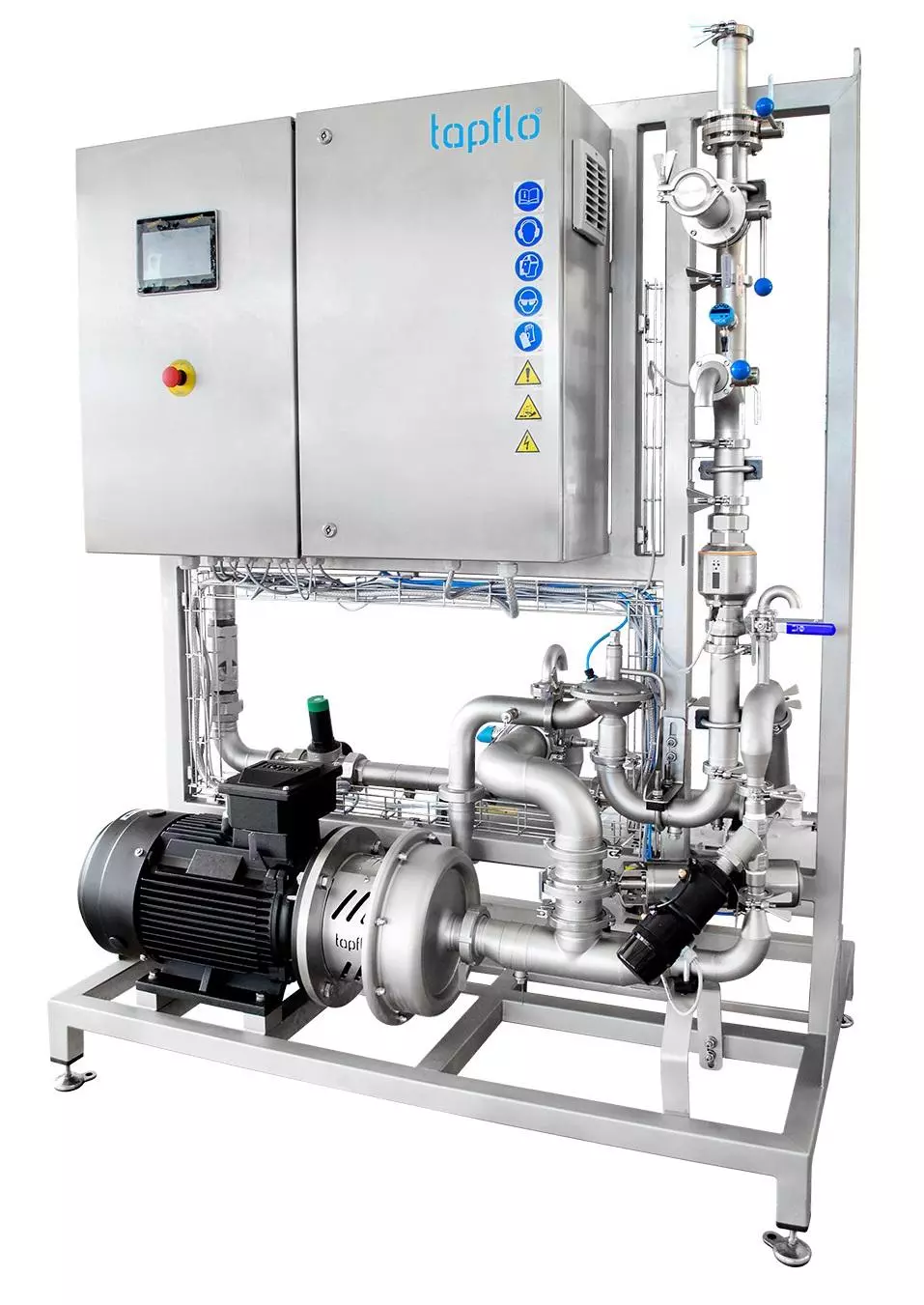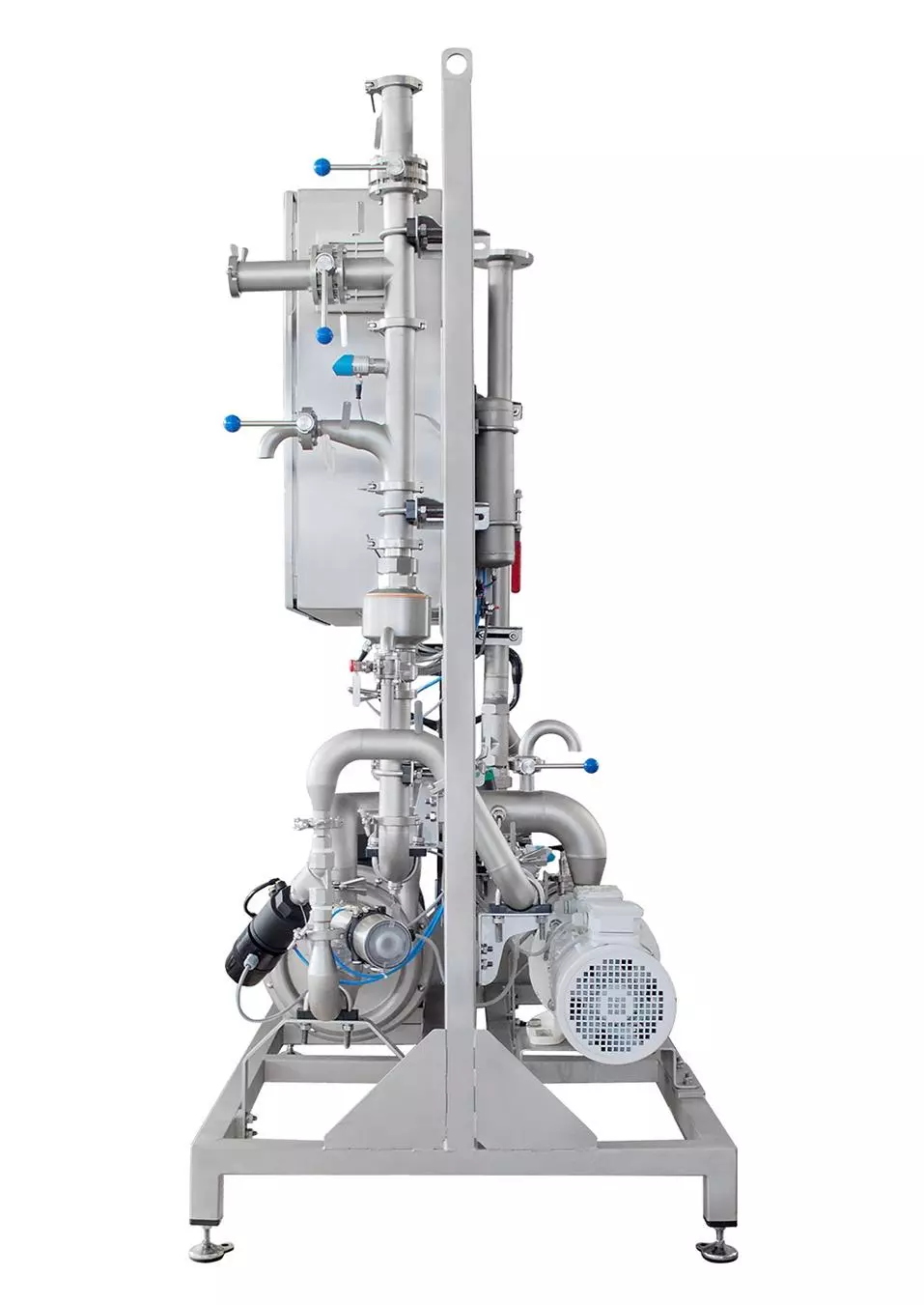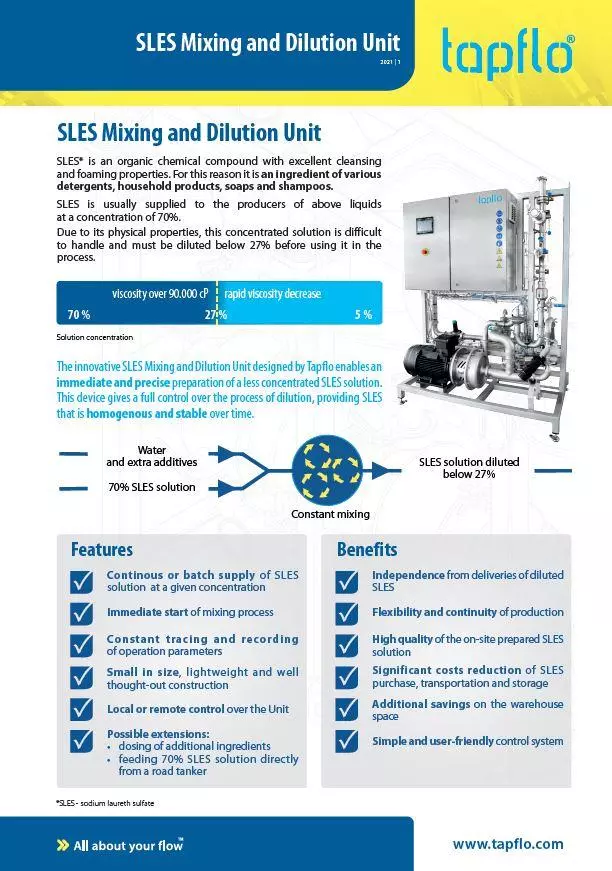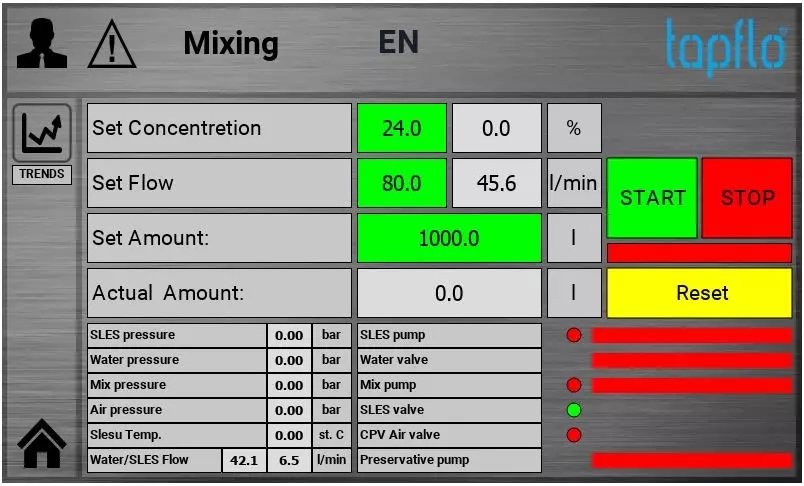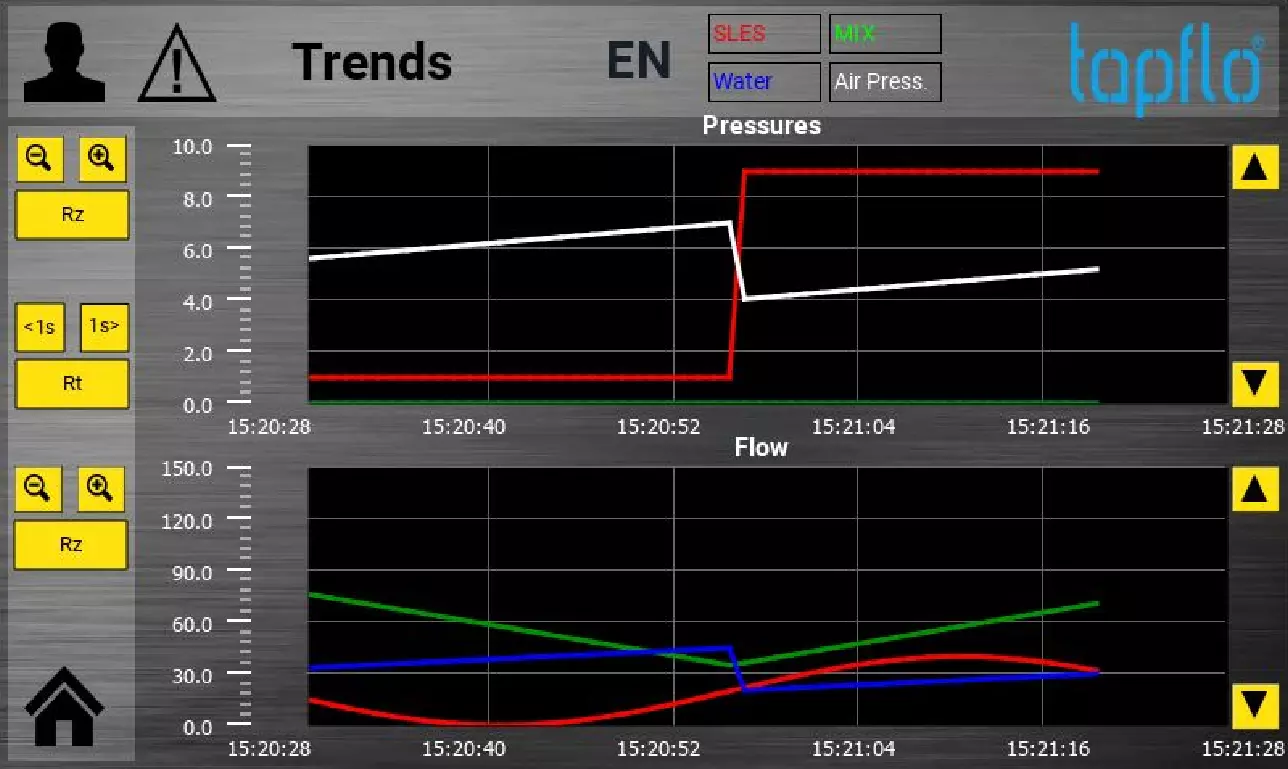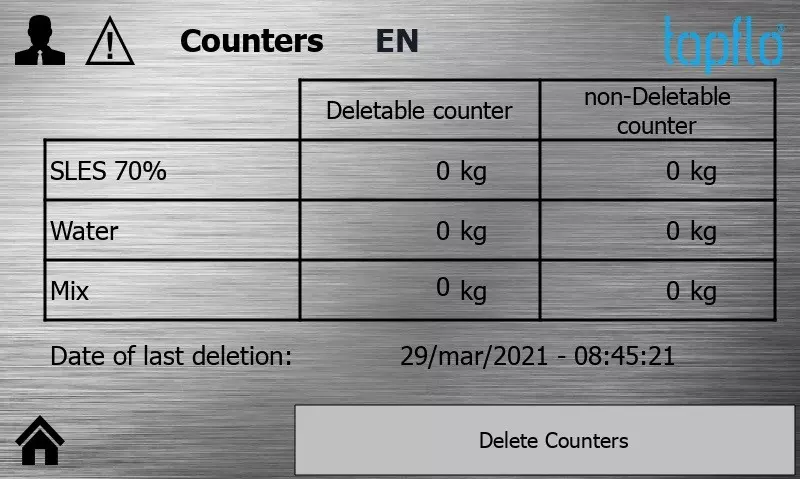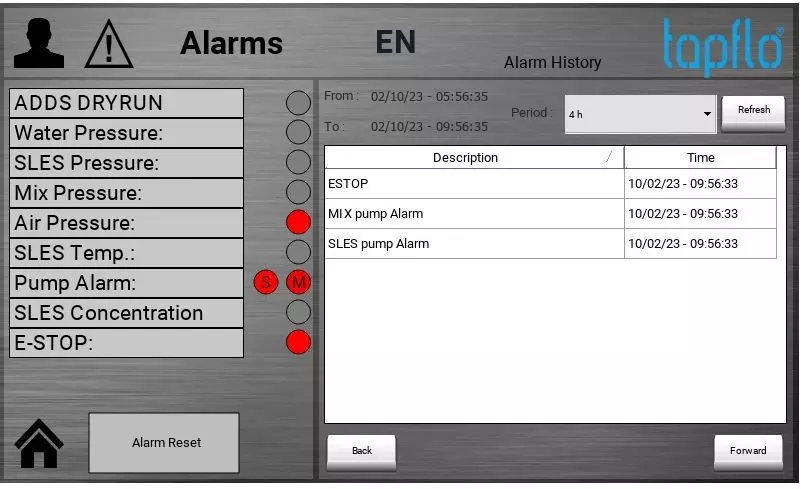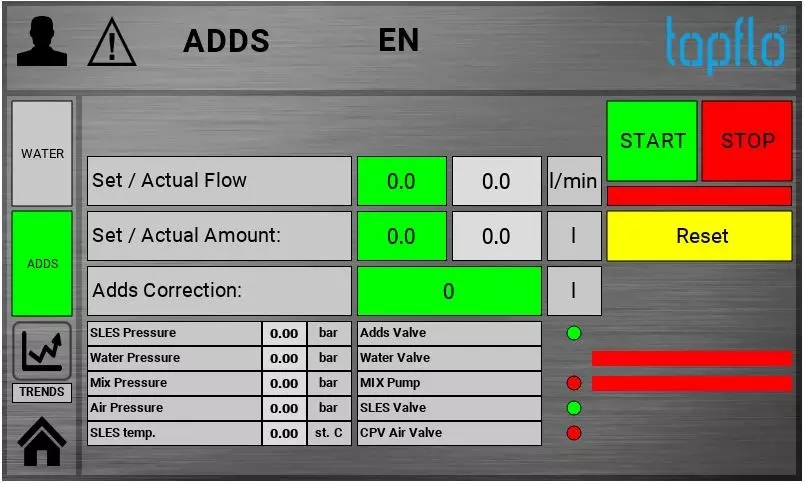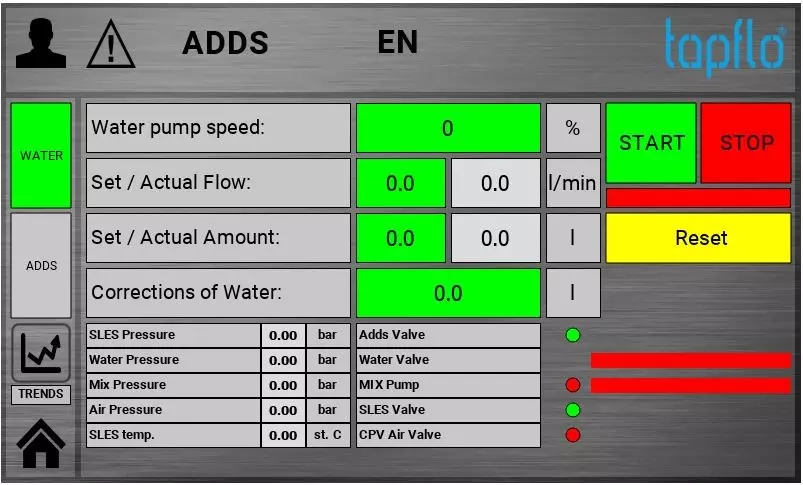Design and materials
| Pumps: |
|
| Control and automation: |
|
| Piping: |
|
| Frame: |
|
SLES or Sodium Laureth Sulfate, is an organic chemical compound, called a surfactant, with excellent cleansing and foaming properties. For this reason, it is an ingredient of various detergents, household products, soaps, and shampoos.
SLES is usually supplied to the producers of the above liquids at a concentration of 70% and due to its physical properties, this concentrated solution is difficult to handle and must be diluted below 27% before using it in the process line. Buying SLES at a 27% concentration can be a huge financial investment for companies, however, with Tapflo’s SLES Mixing and Dilution Unit customers can purchase SLES at 70% concentration and dilute it themselves. Our system allows continuous dilution with maximum efficiency and safety, reducing the cost to the company in the long run.
Features
- Precise diluting of SLES or other surfactant to the required concentration and flow rate.
- Immediate operation gives homogenous and stable in time liquid.
- Brings energy, time, and space savings (compared to other dilution methods).
- Continuous or batch supply of SLES solution at a given concentration.
- Constant tracing and recording of operation parameters.
- Small in size, lightweight, and well-thought-out construction.
- Local or remote control over the Unit.
- Possible extensions: dosing of additional ingredients, feeding 70% SLES solution directly from a road tanker.
Benefits
- Savings of chemicals with exact SLES volume.
- High quality of the on-site prepared SLES solution.
- Energy-efficient and reduce the total cost of the final product.
- Independence from deliveries of diluted SLES.
- Flexibility and continuity of production.
- Significant cost reduction of SLES purchase, transportation, and storage.
- Additional savings on the warehouse space.
Technical data
| Flow rate (SLES solution): | Standardized systems: 5 m3/h and 10 m3/h. Custom-built systems: up to 30 m3/h. |
| Discharge pressure: | up to 6 bar-g |
| Concentration of obtained SLES solution: | The user can select the value between 0 and 27 % |






